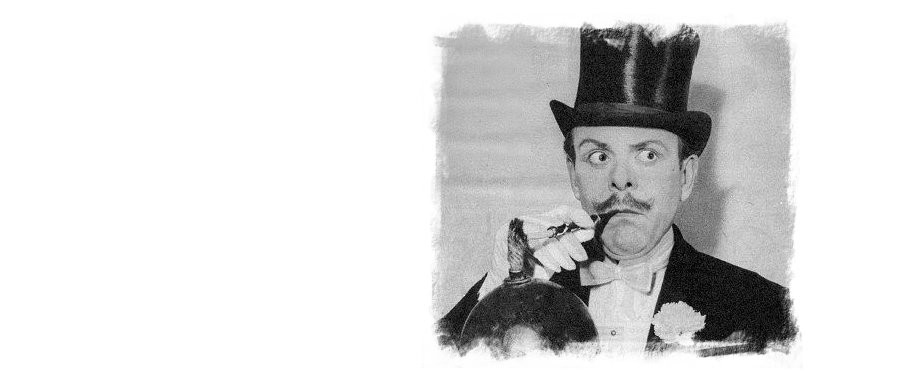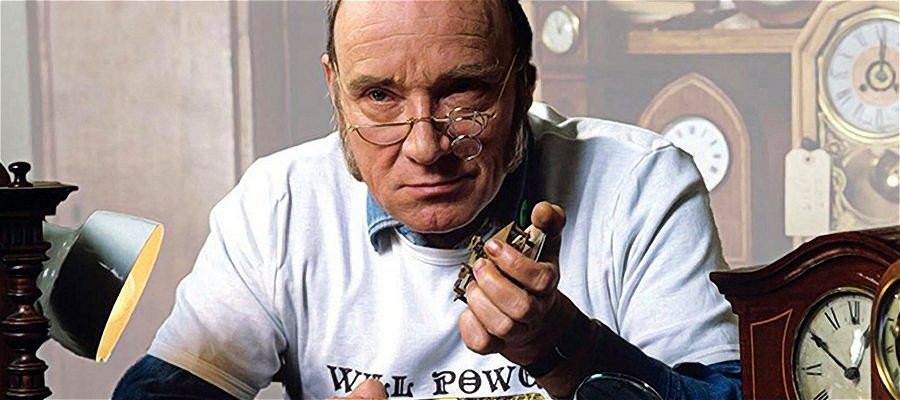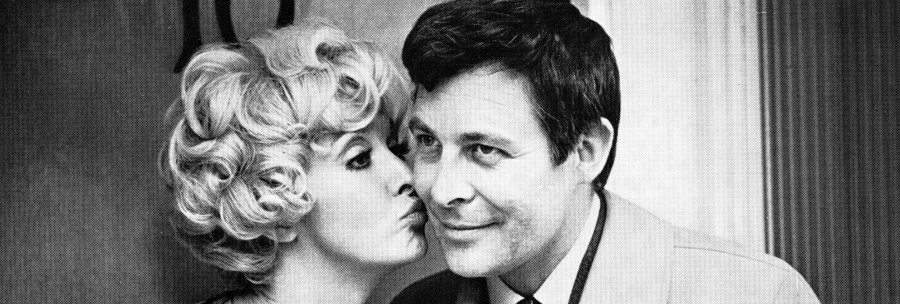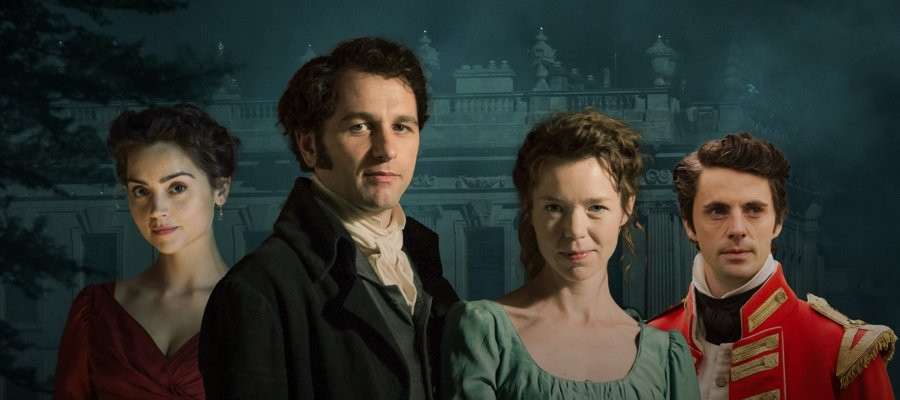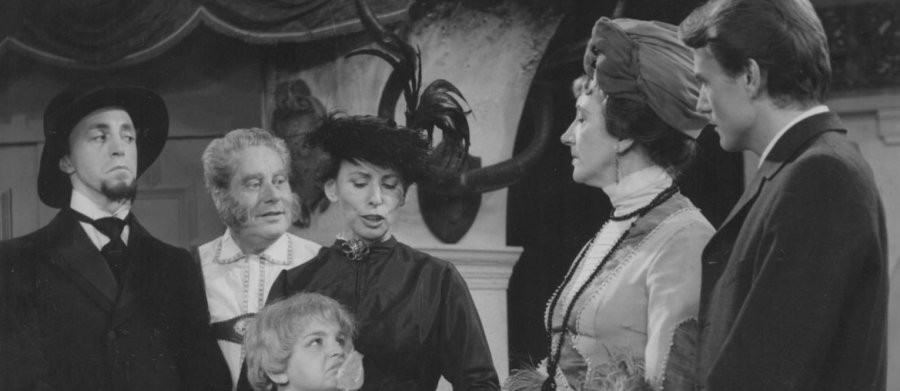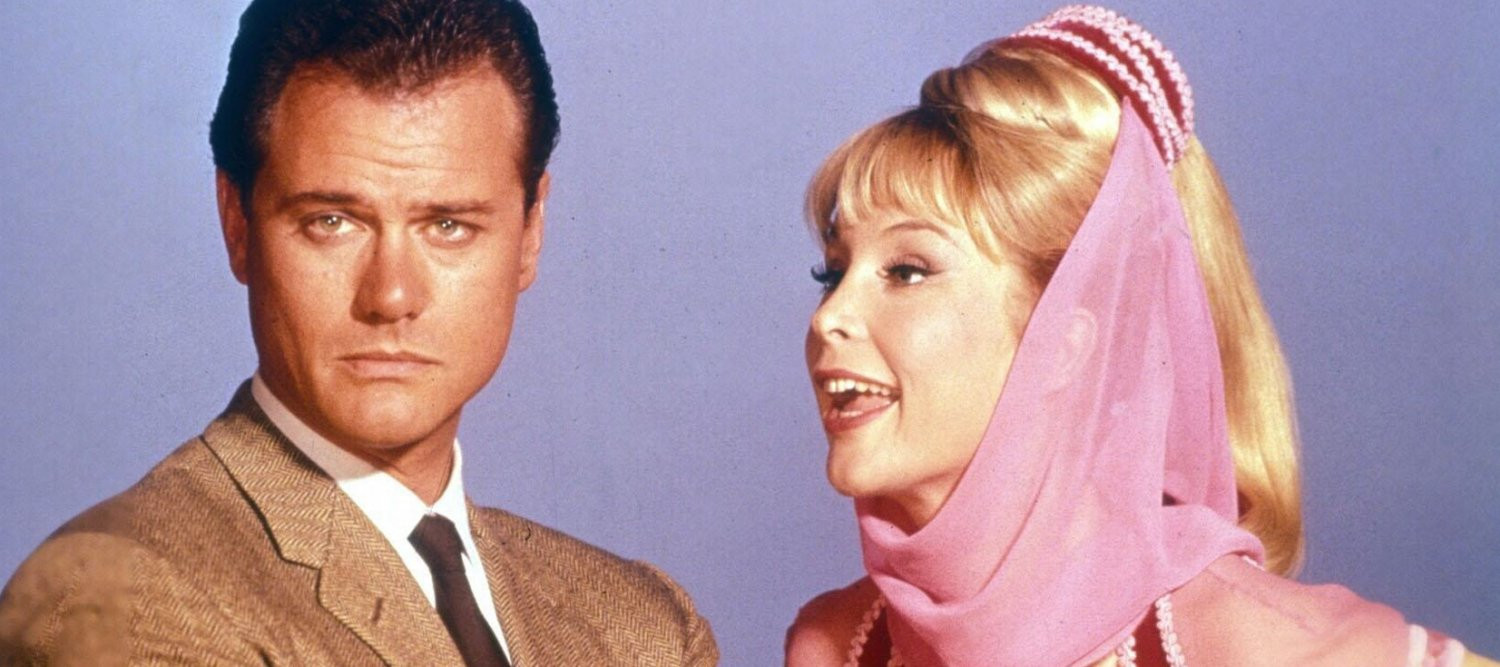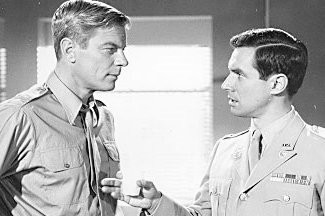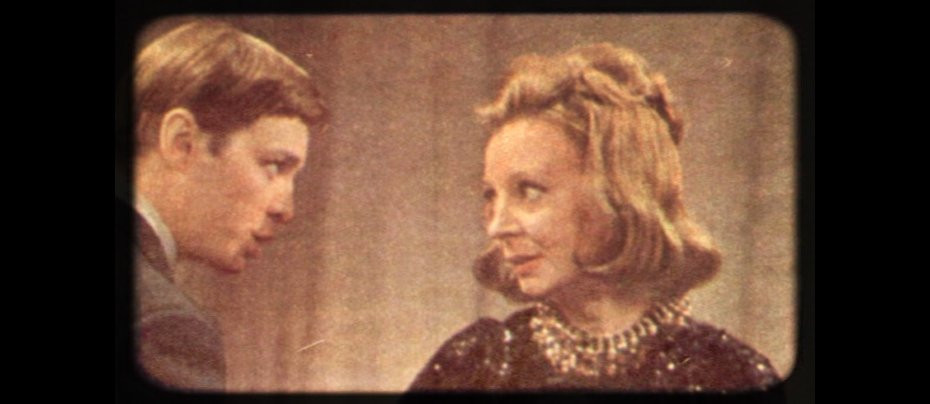
Six Shades of Black
1965 - United KingdomPresented by Granada Television in April and May 1965, Six Shades of Black took its title from being six single black-comedy plays, but with a difference. The hero of the first play becomes the villain of the next play the following week.
Using the macabre as a subject for a comedy, Peter Wildeblood, an Anglo-Canadian journalist, novelist, playwright and gay rights campaigner, who wrote all six episodes, picked subjects and settings beneath which a strain of horror was easy to discern, just waiting to be picked out and highlighted; A broiler chicken farm in Sussex, a palace in Tangiers, the south of France pleasure-bent, the devious occupations of the pop world, the tea-room at the House of Lords and, in the first play, a woman engaged in philanthropic work whose reputation seems too good to be true. Could she be hiding a secret of her own?

"Part of my intention," said Wildeblood, "was to provide some decent parts for women." Consequently each play revolves around a central female figure, and though the plays are each complete in themselves, they are linked. Pamela Brown played Lady Masterman in The Good Woman of Chester Square. An ex-Q.C., a life peeress noted for the humane view she took of any of the failings of her fellow men and for her efforts to help them. This gave the lady a reputation of unblemished goodness. She refused to become a judge due her opposition to capital punishment. But ex-jail bird and con-man Lionel Sparrow (Thorley Walters) wanted to find a flaw in this paragon of unblemished goodness because she had been the prosecutor at his trial. When he couldn't find this flaw, he tried to kill her instead but was prevented by his son (Barry Warren), who revealed the lady's secret. She was married to the public executioner!
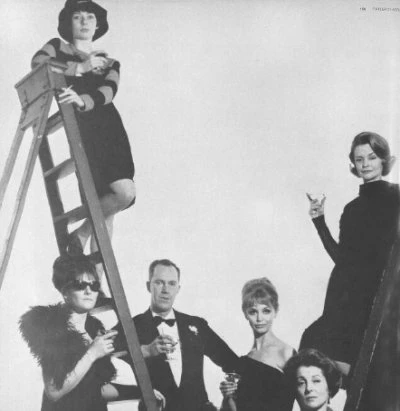
Reviewing the first play in The Stage newspaper, critic Bill Edmund praised much of the casting but found the overall story somewhat pedestrian. ‘Pamela Brown spoke kindly to all, affectionately to some, smiled with great sweetness and looked beautiful. No difficulty there for Miss Brown. She dealt with all this in her usual easy manner. Lionel Sparrow alone was flesh and blood because Thorley Walters played a character quite believable. He was a man conscious of his own miserable failure to face up to his life. There was a self-pity about him and Mr. Walters presented the man for what he really was – mean and cowardly yet cunning and intelligent.’ However, Edmund went on to say that the play lacked humanity. ‘The characters were always actors playing their parts and not men and women living them. This style of writing needs the wit of Sheridan or Wilde if we aren't to feel cheated. But black comedies are the hardest of all to write and Peter Wilde-blood's success or failure must be judged after the series ends.’
The second play reflected Wildeblood’s world view of people at that time. “We all feel virtuous as long as we have someone else to despise —until someone else comes along who despises us. Thus, an endless chain is formed, a kind of moral pecking order, with each man looking down his nose at the next.” Wildeblood put those views into Lady Masterman’s mouth when she observed: “I sometimes think that it isn't love that makes the world go round - it's moral disapproval. He disapproves of her; she disapproves of me. I disapprove of someone else, and they disapprove of you. It makes us all feel much better!” Possibly the perfect analogy to reflect on how many social media sites run in the 21st century.
This was the backdrop for A Touch of Uplift. Barry Warren as Skipwith, a reporter who displayed disapproval in the first play is himself disapproved of in the second. Skipwith's base moved from London to the South of France, where he was summoned by the proprietor (Sir Charles Trotter – played by Bill Fraser) of a trash tabloid called the 'Sunday Disclosure' to work on a story about a religious sect, The Simpletons. The facts of the matter have little interest in the proprietor which he makes quite clear when he tells Skipwith, “I hope you weren't going to mumble anything about facts being sacred and comment being free? Because it's always been our policy to comment on the facts as we print them. If we didn't, our readers wouldn't know which newspaper they'd got hold of.” Pauline Munro is a good-time girl on holiday in the south of France.
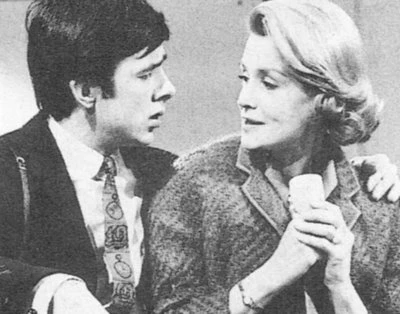
There are other 'Disclosure' reporters on the story, too, and one of them - Netta Batholomew (Ursula Howells) - is the character that was to be carried through to the next story The Finer Things of Life. Netta meets a mother and daughter (played by real-life mother and daughter Clare and Janet Kelly) who run a broiler chicken farm in the country where, according to Janet Kelly all the talk is about "intensive pig-breeding, chicken-gutting and other awful subjects." Concerned about the daughters unresponsiveness and cabbage-like attitude to life, Netta introduces the girl to a friend of hers - a fashionable psychiatrist whose approach to her problems is considerably realistic. It is the psychiatrist who will make the link in the fourth play, A Loving Disposition, in which Nyree Dawn Porter is discovered sharing a flat with her husband, five lovers and a python called Alvis.
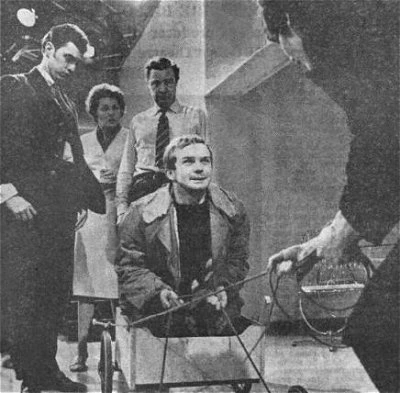
The Kindest Thing To Do, concerns the story is about a police superintendent's son who is sent down from Oxford for keeping a girl in his room. Robin Phillips played the son of Faith Brook and David Langton, who tries to persuade them to join him in taking the disabled Willie (Keith Buckley) under his wing. The final play, There is a Happy Land, brings the series full circle as Pamela Brown returns as Lady Masterson and Robin Phillips is a courier stranded in Tangiers who gets a bawling from Penelope Keith in her role of a titled woman who has thrown in her lot with a crowd of deadbeats.

No other reviews of the series can be found in contemporary British newspapers and the series appears to have disappeared without further comment so it is difficult to judge whether or not the full run of six (loosely) connected plays was a success or not. However, a look at the TAM ratings for 1965 reveals that Six Shades of Black performed remarkably well. It finished 6th one week with an estimated audience of 6,380,000 being beaten by Coronation Street, No Hiding Place, Take Your Pick, The Dickie Henderson Show, and Emergency-Ward 10 but beating Sunday Night at the London Palladium, Top of the Pops and Sherlock Holmes.
Peter Wildeblood went on to produce and executive produce a number of television shows up until 1982 by which time he moved to, and become a citizen of Canada. He had an extraordinary life. Having been charged in 1954 with "conspiracy to incite certain male persons to commit serious offences with male persons" (or "buggery"), he was imprisoned for 18-months after admitting being homosexual. He published a book on the case, Against the Law, an account which detailed his experiences at the hands of the law and the British establishment, brought to light the appalling conditions in HM Prison Wormwood Scrubs, and encouraged campaigns for prison reform and for reform of law regarding homosexuality. His role in the decriminalisation of homosexuality in England & Wales, which occurred in 1967, was explored in the Channel Four docudrama A Very British Sex Scandal and the 2017 BBC docudrama Against the Law. He passed away in November 1999, aged 76 years of age.
Seen this show? How do you rate it?
Seen this show? How do you rate it?
Published on July 5th, 2022. Written by Laurence Marcus for Television Heaven.


